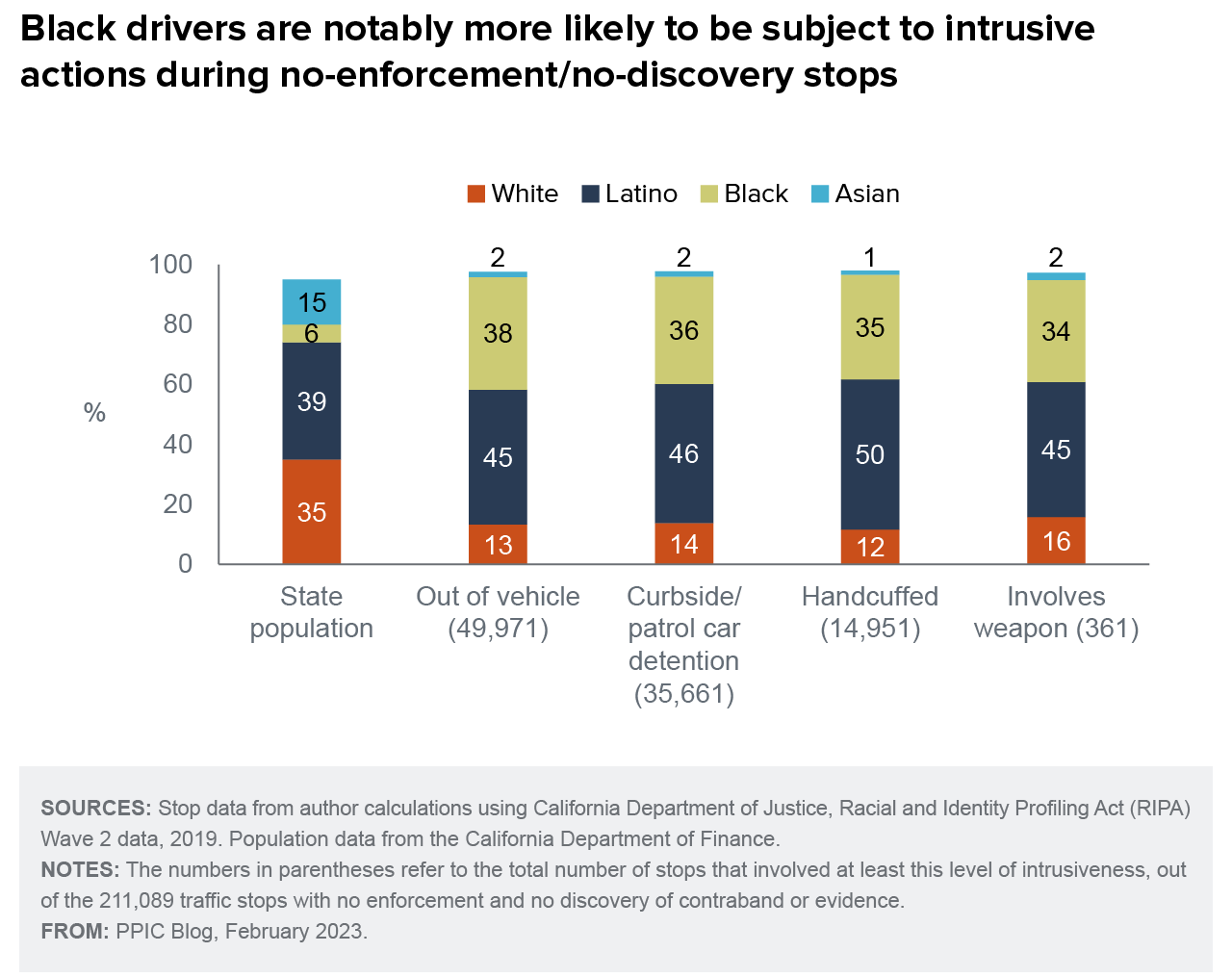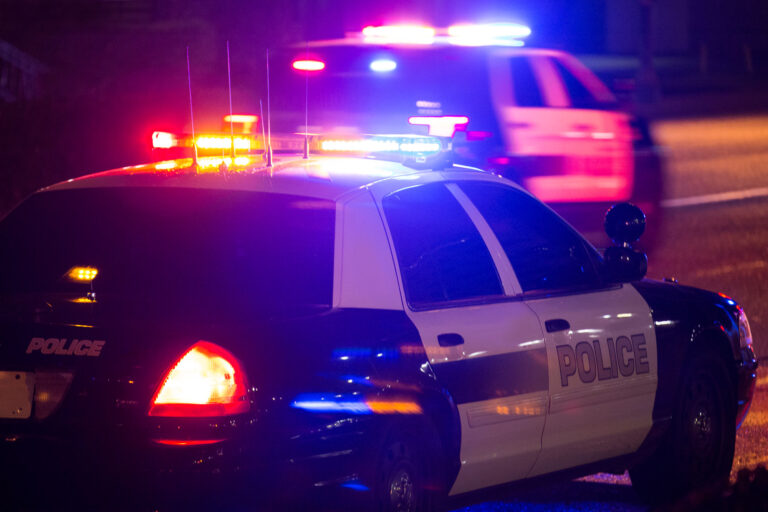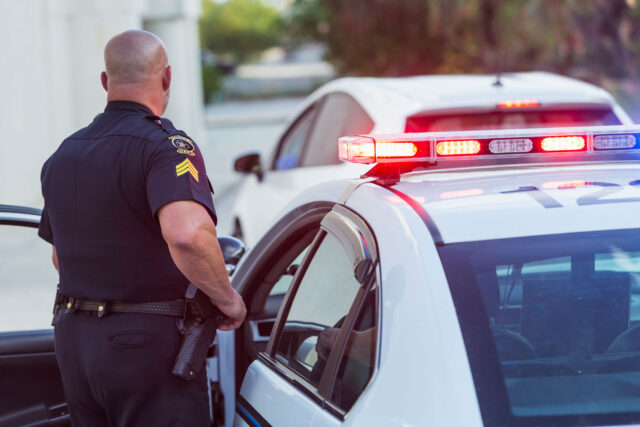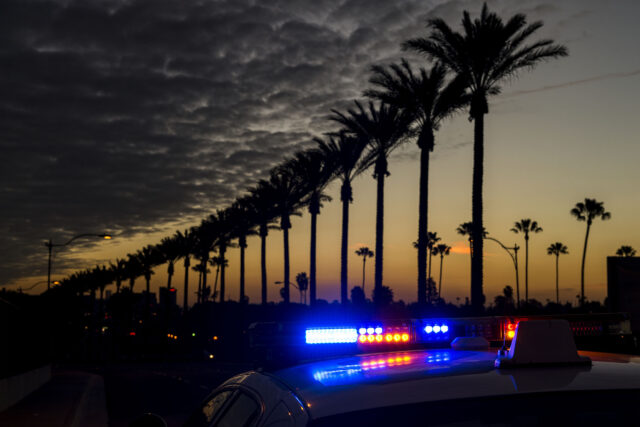The tragic death of Tyre Nichols at the hands of Memphis police officers during a traffic stop may accelerate the exploration of alternative enforcement of traffic laws across the country. In California, the Committee on Revision of the Penal Code and the Racial and Identity Profiling Act Board recently recommended limiting so-called pretextual stops—the use of minor traffic violations as grounds for investigation. A few cities—including Los Angeles, San Francisco, and Berkeley—have already implemented changes, and more agencies across the state may soon follow suit.
Interactions between police and members of the public—whether for traffic stops or some other reason—carry inherent risks. More than 625 Californians are seriously injured by law enforcement each year, and about 195 of these injuries are fatal; gunshot wounds are by far the most common cause of death. Most incidents involving the use of force are considered justified, but some of these injuries are due to officer misconduct. Over half of those who are seriously injured are unarmed, and 15% of serious injuries occur during vehicle or pedestrian stops—the vast majority of which are traffic stops.
Our research has found that traffic stops are the key driver of racial disparities in both the likelihood of an individual being stopped and the likelihood of a search, enforcement, intrusiveness, and/or use of force during that stop. Black drivers are notably more likely to be subject to intrusive actions even in the 6% of traffic stops during which an officer does not discover contraband in a search or does not carry out any enforcement (including a warning).

Alternative enforcement methods—such as mailing warnings/citations for non–moving violations or introducing red-light cameras—are likely to reduce racial disparities. They might also improve the safety of officers and members of the public by reducing these potentially risky interactions. However, decreasing the number of traffic stops might have a negative impact on public safety, particularly if it restricts an officer’s ability to confiscate firearms, and on traffic safety if it induces unsafe driving behavior. As police departments consider reforms to traffic stops and searches, they should take a data-driven approach that can help them identify both positive and negative effects in the communities they serve.






